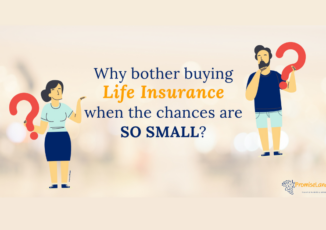By David Choo, PromiseLand Independent
I remember being approached by a life insurance agent when I started working. Insurance was the last thing of my concerns as I celebrated receiving my first pay check. I love my parents who had provided for my growing up years and education and had no hesitation to give them a few hundred dollars each month.
I knew I had to start saving money to buy a car and prepare ahead for marriage and to start a family. At that young age, I already realised how important family is to me. I cannot remember why I agreed to buy a small policy covering $50,000 then but, looking back, I did the right thing, more out of love and concern for my family than out of rational financial planning.
The principle behind insuring an individual even before he has dependants of his own is called “economic value of life”. This principle states that every human being has an economic value which includes the money expended in raising him or her to the present age and the potential money that this person can earn in his working life, for which very reason, he is educated and trained. The insurance industry agrees that economic value exists but there is no exact value given to life. The sum that each insurer is prepared to insure a particular person depends on the insurer’s assessment or underwriting of the person.
The good thing is that even a person who has not started working or is not working in a normal paid job like a homemaker, can be insured because he or she has an economic value. But why would a student or homemaker want to insure? Most likely, the premium would be paid by another person who may be a spouse, a parent, or a creditor. The term used is “insurable interest”. So a spouse has an “insurable interest” to insure the other spouse. Parents have “insurable interest” to insure children but siblings have no “insurable interest” to insure siblings unless a legal guardianship exists.
Interestingly, a person or institution owed money (the creditor) can insure a person who owes the money (the debtor) for the outstanding amount. A common example is the mortgage-reducing term assurance (MRTA) now shortened to mortgage term insurance which is taken by or assigned to the bank.
“Insurable interest” must exist for a “third party insurance” (one person insuring another person) to be legal. A person becomes a legal person at age 18 in Singapore, which means that an 18-year-old person or older can now buy insurance on his own life.
When one person buys insurance on another person, the motive is very important as the moral risk is much higher and insurers have to underwrite more carefully and may limit the amount of insurance.
Parents who insure their children often do it with the intention of setting up their children early in life. The policy ownership can go over to the child at his legal age. It does not matter if the parents still continue to pay the premium until the child starts being economically self-dependent.
Often we have to remind parents to ensure they are adequately insured before thinking of insuring their children’s lives.
The story of the goose which lays the golden eggs clearly teaches us the wisdom of insuring the money earner rather than the children.
Similarly, the breadwinner needs more insurance than the homemaker although the economic value of the homemaker must not be underestimated.
When it comes to medical insurance, the needs of everyone would have to be regarded as more equal. It is thus more prudent that children, no matter how young (from as early as a few months after birth), or even from birth (if there is a cover), should be insured against medical risks. Thus the saying that insurance can take care of you from cradle to the grave.
In the context of financial planning, the planning for all the different stages of life is called life-cycle planning. The objective is to identify the risks at each stage and, where possible and affordable, to protect against the risks like the army slang “all-round defence”.
This article was prepared by David Choo in his personal capacity. The opinions expressed in this article are the author’s own and do not reflect the view or position of PromiseLand Independent Pte Ltd.
If you are reading this, you are already taking or have taken steps to seek wisdom in making good choices in your finances. At PromiseLand, our ethos is “Trusted Advice, Trusted Advisor”. It means that we will walk the journey with you to make those choices that protect what you value most.











